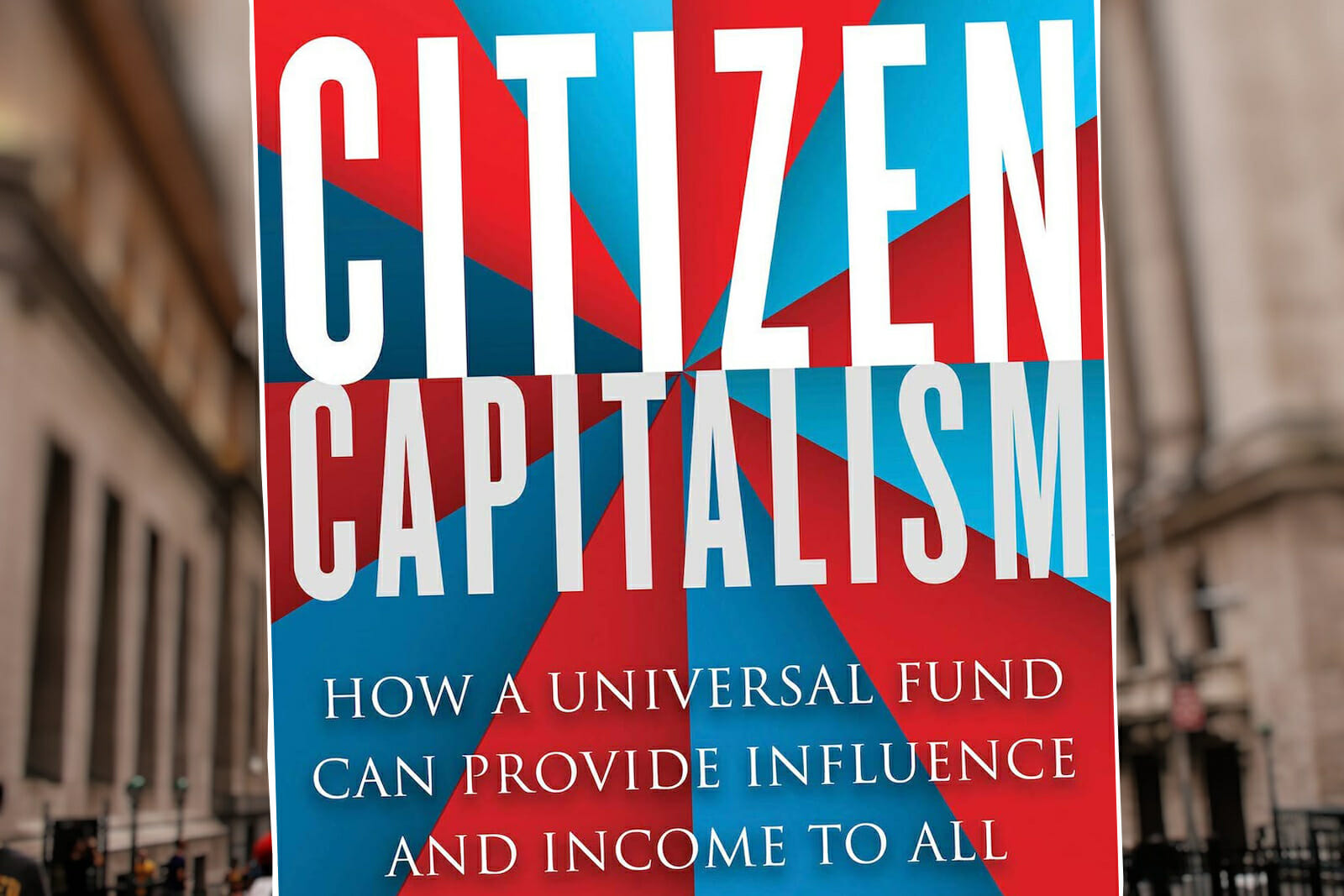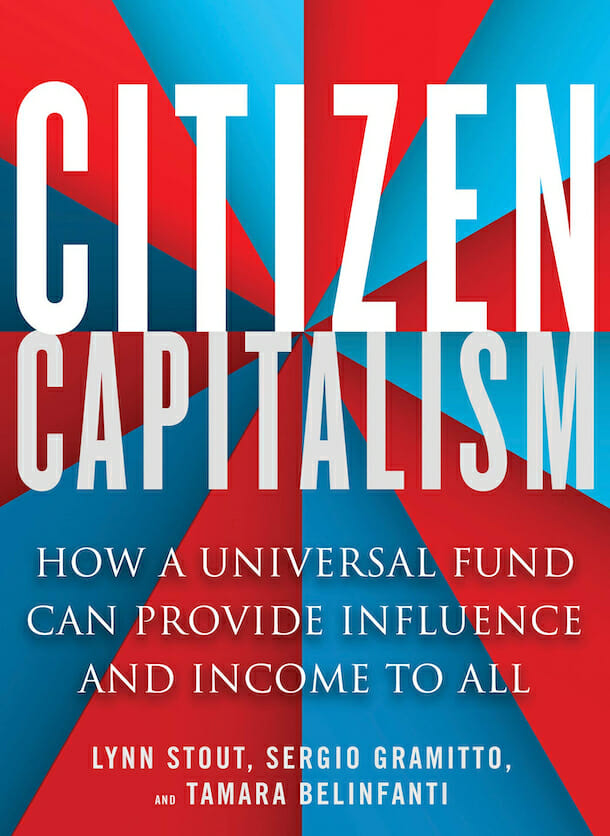
Books
Can a Universal Fund Solve Capitalism?
In the face of growing wealth inequality worldwide, more and more people are discussing alternatives to the current laissez-faire capitalism status quo. Tamara Belinfanti, Sergio Gramitto and the late Lynn Stout offer up their own solution in Citizen Capitalism: How a Universal Fund Can Provide Influence and Income to All.
The authors have devised a concept they call the Universal Fund. It’s like a sovereign wealth fund but is privately created and funded via private ordering. That means that the Universal Fund is to be created from donations of stocks by companies and philanthropists. The government would hence be uninvolved; the Universal Fund is not a socialist venture. Rather, it is in part modeled on the structure of NGOs like the Sierra Club and the Red Cross. The Fund would provide an annual dividend to every citizen, with no maximum income cap. Though it may seem absurd to send welfare payments to the wealthy, it’s politically savvy framing. A free public college bill was passed in ultraconservative Tennessee thanks to having no maximum income cap; conservative detractors weren’t able to use the “class warfare” and “welfare queen” arguments. It should be noted that charitable tax deductions, estate tax reductions, and lowered tax brackets would act as a de facto government incentive for the wealthy to donate to the Universal Fund.
The goals of the Universal Fund would be to decrease wealth inequality, encourage long-term investment and increase civic engagement in corporate culture. On the last point, the authors remind us that, “The top 10% [of wealthiest Americans] hold more than 90% of all shares.” Even in regards to the other 10% of shares owned, most of them are passively owned. Most small-time investors don’t have time to vote at the annual general meetings of every company in which they are invested. Thus, boardroom votes are dominated by two shareholder proxy advisory firms and individual investors who own a substantial percentage of shares, as well as fund portfolio & hedge fund managers.

These Wall Street elites naturally tend to vote based upon their elitist interests. Thus, they usually make decisions that are insane in terms of employee welfare, long-term corporate growth, executive pay, and the environment. For example, `the authors remind us of the recent case of Martin Shkreli, the hedge fund manager who acquired Turing Pharmaceuticals and then raised AIDS medication prices from $13.50 to $750. This is the embodiment of the Reagan-era Golden Rule of maximizing shareholder value. Not only is this Gordon Gecko truism objectively crazy, but it’s also actually legally unfounded. Contrary to what you hear on CNBC or Fox Business, there’s no legal requirement that companies only focus on maximizing shareholder value. The book relates the following quote from Supreme Court Justice Samuel Alito’s comments in the recent case Burwell v. Hobby Lobby: “Modern corporate law does not require for-profit corporations to pursue profit at the expense of everything else, and many do not do so.”
Citizen Capitalism points to the ongoing successes of the sovereign wealth funds of Norway and Alaska, ultraliberal and ultraconservative societies, respectively. The Alaskan fund generally provides each citizen with a dividend payment of a few thousand dollars each year, via the state’s oil revenues. The Government Pension Fund Norway is a more pertinent example since it’s funded through a $1 trillion stock portfolio. Norway is not only able to fund its citizens’ pensions through the Fund, but also exert moral influence on the market. The Fund boycotts various egregious companies, like cigarette manufacturers, and will sell its shares in a company that gets exposed for abusive practices, like employing child labor. Our authors likewise want the Universal Fund to use a carrot-and-stick approach in regards to corporate ethics.
The thesis of Citizen Capitalism is, as the title suggests, rooted in optimism for capitalism. Though they write about the success of the socialist program in Alaska specifically, a conservative state in the US, the authors are convinced that a sovereign wealth fund bill could never be passed in Congress. Recent polls and election results, however, show that Americans are starting to overwhelmingly favor ambitious government-program proposals like Medicare for All and a Green New Deal. As I wrote before, the Universal Fund would mostly be feasible due to tax incentives; these government incentives would likely need to be greatly expanded in order to encourage enough stock donations to build the Fund to a substantial size. Even America’s greatest philanthropists still stockpile billions of dollars in their offshore bank accounts. Thus, one shouldn’t expect the Universal Fund or other private UBI schemes to become a replacement for state management of wealth inequality through programs like public school funding and marginal taxation. Nonetheless, Citizen Capitalism is a stimulating little primer for rethinking the relationship between Wall Street and Main Street managing the looming crises of a rapidly aging workforce and automation, plus the balancing of private and public sectors in regards to solving societal problems.

